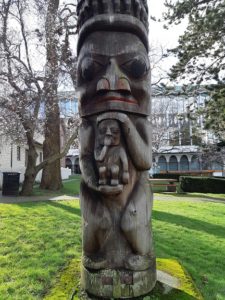
Discrimination Against Indigenous Children May Cost Canada $15 Billion
by Kajia Eidse-Rempel
Background: Jordan’s Principle
Jordan River Anderson was a boy from Norway House Cree Nation in Manitoba born in the hospital with complex medical needs. Because the federal government funds public services on reserves, while the provinces cover everyone else, Jordan became caught in a jurisdictional dispute over who would pay the cost for him to receive home-based care. He passed away in the hospital at the age of five without ever having lived in his family home, simply because he was Indigenous.
Jordan’s Principle is a child-first principle named in memory of Jordan, which provides that public services ordinarily available to other Canadian children must be made available to Indigenous children without denial or delay. Government must cover the costs and work out disputes over jurisdiction afterwards, so that Indigenous children and their families are not left to suffer in the meantime.
Stories like Jordan’s are far from uncommon. In January 2016, the Canadian Human Rights Tribunal (the “Tribunal”) found Canada discriminates against First Nations children and families living on reserve and in the Yukon with respect to the provision of child and family services.[1] Canada was ordered to cease its discriminatory practices and to implement the full meaning and scope of Jordan’s Principle.
In September 2019, the Tribunal ordered Canada to compensate First Nations children who have been denied essential medical services or experienced unreasonable delay. Each affected child and each caregiving parent or grandparent of that child is entitled to $40,000, which is the maximum individual remedy permitted under the Canadian Human Rights Act.[2]
New Report Estimates Canada Owes $15 Billion in Compensation
A report released by the Parliamentary Budget Office on February 23, 2021, estimates that the financial cost of complying with the Tribunal’s decision could amount to $15 billion.
According to the report, between 19,000 and 65,000 persons are eligible for compensation as a result of having been unnecessarily removed from their homes, families and communities and taken into care. Another 13,000 children and 20,000 parents or grandparents are likely eligible for compensation due to the denial or delay of essential services. This brings the total cost of complying with the Tribunal’s order to somewhere between $2.2 billion and $4.2 billion.
The Tribunal has now approved a compensation framework submitted by the parties that provides compensation for all children who were deprived of essential services or experienced unreasonable delay of services, whether they were taken into care or remained in their homes. The report estimates that an additional 90,000 children (and their estimated 130,000 parents or grandparents) could be eligible for compensation on this basis. The framework raises the cost to Canada beyond the report’s own initial estimates by around $11.5 billion, for a total cost of $15 billion.
Discrimination Dispute Ongoing
It has now been over five years since the Tribunal made its finding of discrimination and 16 years since Jordan River Anderson passed away. Canada continues to drag out the legal dispute and the complainants have been forced to take Canada back to the Tribunal on multiple non-compliance motions.
In December 2020, the federal government applied to set aside the Tribunal’s determination that Jordan’s Principle extends to children who are recognized as citizens or members of their respective First Nations but are not “status Indians” under the Indian Act.[3] Canada’s position that Jordan’s Principle does not extend to these children is an affront to Indigenous self-determination, reconciliation and basic human rights.
Canada is required to provide services to children that meet the eligibility criteria set out by the Tribunal, including children recognized by their Nation for the purposes of Jordan’s Principle, pending a decision from the Federal Court.
It is time for Canada to accept responsibility and to move forward in a good way.[4]
[1] First Nations Child and Family Caring Society of Canada et al. v. Attorney General of Canada (for the Minister of Indian and Northern Affairs Canada), 2016 CHRT 2.
[2] 2019 CHRT 39, paras. 185, 250-251 and 254.
[3] Canada’s Notice of Application for Judicial Review is available here (accessed 23 February 2021).
[4] For information on how to access services through Jordan’s Principle, click here (accessed 23 February 2021).
